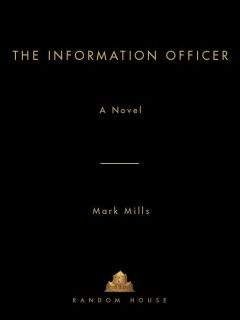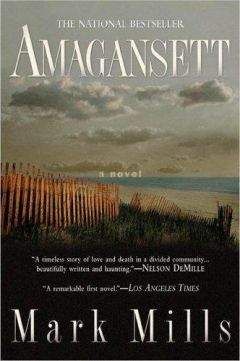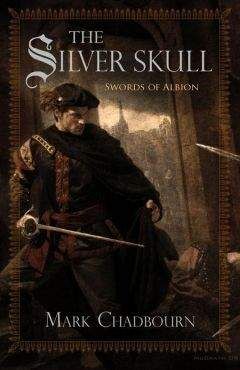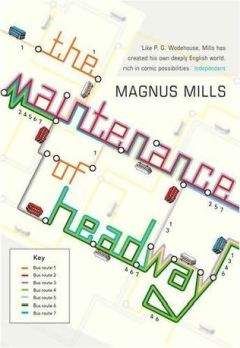Mark Mills - The Information Officer
На сайте mybooks.club вы можете бесплатно читать книги онлайн без регистрации, включая Mark Mills - The Information Officer. Жанр: Прочее издательство неизвестно,. Доступна полная версия книги с кратким содержанием для предварительного ознакомления, аннотацией (предисловием), рецензиями от других читателей и их экспертным мнением.
Кроме того, на сайте mybooks.club вы найдете множество новинок, которые стоит прочитать.

Mark Mills - The Information Officer краткое содержание
The Information Officer читать онлайн бесплатно
Also by Mark Mills The Savage Garden Amagansett
For Caroline, Gus, and Rosie
You have killed a sweet lady,
and her death shall fall heavy on you.—from Much Ado About Nothing
by WILLIAM SHAKESPEARE
LONDON
May 1951
MARIO WAS IN A GOOD MOOD.
This wasn’t saying much; he was often in a good mood. It was a legacy from his father—a simple, hardworking man who had drilled into his children the value of giving daily thanks for those things that most people took for granted.
Mario cast an approving eye around the restaurant. A prime site a stone’s throw from the Ritz, and after just four short years, a reputation to match the very best in town. Not bad for the son of a shoemaker from a small village in northern Italy. Not bad at all.
The place was empty, just one lone customer at the bar, but the restaurant would be heaving within the hour, even in these austere times. He checked over the reservations book, memorizing the names and the table allocations. He prided himself on not having to refer to it once the first diners had arrived. There was the usual smattering of household names with strong views about where they sat. Juggling their wishes was about as hard as his job got.
Table 7 was the first to show. The man’s face wasn’t well known to Mario—one of the birthdays-and-anniversaries-only crowd—but Mario remembered him as a generous tipper. He wore a good-quality suit, its looser cut suggesting one of the new tailors just off Savile Row. He informed Mario that his wife would be arriving separately and requested a dry martini to keep him company in the meantime.
The wife was obviously a romantic, because a special order had been placed earlier in the day for a bottle of wine to be brought to the table as a surprise. It was a white wine from a small French house, and it had arrived by taxi along with written instructions and a generous contribution toward corkage.
The bottle was already on ice, ready and waiting behind the bar. Mario tipped Gregory the wink before taking up a discreet position behind a bushy palmetto to observe the reaction.
The man smiled at the appearance of the ice bucket, but the moment Gregory revealed the bottle to him, he fell absolutely still, the blood draining from his face. He looked up at Gregory, speechless, and then his eyes darted wildly around the restaurant. They came to settle on the only other customer—the gentleman seated at the bar. The man’s back was turned to table 7, but he now swiveled round on his stool.
It was impossible to read the look that passed between the two men, but it crackled with a strange intensity. Poor Gregory was flummoxed. He offered to pour the wine, was ignored, then wisely chose to retire as the gentleman at the bar made his way over, clutching his cocktail. He was tall and balding and walked with a lazy grace.
Another thing Mario prided himself on was his absolute discretion, but this was a conversation he wanted to hear. He drifted toward table 10, out of sight behind the high banquette but just within earshot. He arrived as the balding man was taking a seat.
“You look like you’ve seen a ghost.”
There was a soft but unmistakable American lilt to his accent.
“Where’s my wife?” said the other man.
“Don’t worry. She’s just fine.”
“Where is she?”
“At home. She thought we should talk.”
“I don’t believe you.”
“It’s true. Call her if you’d like. Cigarette?”
“I have my own.”
“Try one of these—they’re Russian.”
Mario heard the cigarettes being lit and then the balding man say, “What’s your secret?”
“My secret?”
“You’ve barely aged in ten years.”
“Nine.”
“It feels longer.”
“Does it?”
“I miss Malta.”
“I doubt that.”
“You don’t seem very pleased to see me.”
“What did you expect? The last time I saw you, you tried to kill me.”
Mario almost toppled a wineglass on table 10.
“Is that what they told you?” asked the balding man.
“They didn’t have to. I was there, remember?”
“You’re wrong. I could have killed you. Maybe I should have. I chose not to.”
The other man gave a short snort of derision.
Mario was well out of his depth now and regretting his decision to eavesdrop. Help came in the form of a large party of diners who blew in through the door on a gale of laughter. Mario couldn’t see them from where he was lurking.
“Isn’t that the actor everyone’s talking about?” said the balding man.
“I think so.”
“I’m not sure a fedora and a cloak suit a fellow that short. He looks like a kid playing at Zorro.”
Definitely table 2, thought Mario, swooping from his hiding place to greet the new arrivals.
MALTA
May 1942
SHE KNEW THE CEMETERY WELL—NOT EVERY GRAVESTONE, tomb, and mausoleum, but most. She certainly knew it well enough to tread its twisting pathways with confidence, even on a moonless night such as this. Before the blackout restrictions, she would have been assisted on her way by a constellation of flickering candles, but with the deep darkness as her only companion, she still walked with confidence and purpose.
The mellow scent of pine sap came at her clear on the warm night breeze. Tonight, however, it did battle with the rank odor of decay, of putrefaction. Two wayward German bombs—or possibly Italian, now that the cicci macaroni were back—had smacked into the hillside the previous night during a raid, reducing family tombs to rubble and wrenching coffins from the thin soil. Corpses in various states of decomposition had been scattered in all directions, their rude awakening like some dress rehearsal for Judgment Day.
It was Father Debono who had drawn this parallel for their benefit at early-morning Mass, and while it was the sort of observation for which he was known, and the sort that endeared him to the younger members of his flock, his willingness to flirt with irreverence was a source of ongoing distrust among the more elderly. Many had furrowed their brows; some had even tut-tutted from their pews.
She knew where her sympathies lay, though. She knew that it was Father Debono, not old Grech and his wizened holier-than-thou sister, who had spent that day in the thick of it, toiling through the pitiless heat and the inhuman stench to ensure that all the corpses were recovered and reburied with all the proper rites.
Judging from the smell, Father Debono and his small band of helpers had not been able to complete their grim task before nightfall, and she picked up her pace a little at the thought of the rats feasting on flesh nearby. She had always hated rats, even before the war, before the stories had begun to circulate about what went on beneath the rubble of the bombed-out buildings.
She saw a light up ahead: a flickering flame … the vague contours of a face … a man lighting a cigarette. Then darkness once more.
She slowed, more from respect than fear. With the cemetery doing a roaring trade, it was not the first time she had come across some grieving soul while making her way home from work in the early hours of the morning. She had once heard deep male sobs in the darkness and had removed her shoes so that the unfortunate person would not be disturbed by her footfalls on the paved pathway.
“Good evening,” she said quietly in Maltese as she drew level.
He was seated on the low stone wall to the right of the path, and he responded in English.
“I think you’ll find it’s morning, Carmela.”
She didn’t know the voice, or if she did, she couldn’t place it.
“Did you make good money tonight?” he asked.
He not only knew her, but he knew what she did, and she was happy he couldn’t see the color rising in her cheeks.
“Yes, not bad.”
“Oh, but you are, and you know it.”
It wasn’t so much the words as the slow, easy drawl with which they were delivered that set her heart racing.
His small laugh did something to soothe her building apprehension.
“I was only joking.”
He drew long and hard on his cigarette. In the dim glow of burning tobacco, she could just discern that he was wearing khaki battle dress: shirt and shorts. This didn’t help much. All the services had adopted it recently, and she was unable to make out the shoulder flashes.
“Who are you?” she asked.
“Ah, now I’m insulted.”
It could have been Harry, or Bernard, or even young Bill, the one they all called “little Willy” (before invariably erupting in laughter). But she didn’t feel like laughing because it could have been almost any one of the officers who passed through the Blue Parrot on a typical night, and this man remained silent, enjoying her confusion, her discomfort, which was cruel and uncalled for.
“I must go.”
He was off the wall and seizing her arm before she had taken two paces.
“What’s the hurry?”
She tried to pull free, but his grip was firm, viselike, painful. She let out a small cry and attempted to twist away. The maneuver failed miserably, and she found herself trapped against him, her back pressed into his chest.
He clamped his free hand over her mouth. “Ssshhhh,” he soothed.
He spat the cigarette away and put his mouth to her ear.
“You want to know who I am? I’m the last living soul you’ll ever set eyes on.”
She didn’t need to know all of the words; she understood their meaning. And now she began to struggle in earnest, her thoughts turning to her home, her parents, her brothers, her dog, all so close, just a short way up the hill.
He repaid her efforts by twisting her left arm up behind her until something gave in her shoulder. The pain ripped through her, carrying her to the brink of unconsciousness, her knees starting to give. In desperation she tried to bite the hand gagging her cries, but he cupped his fingers away from her teeth. His other hand released her now-useless arm and jammed itself between her legs, into the fork of her thighs, pulling her back against him.
His breathing was strangely calm and measured, and there was something in the sound of it that suggested he was smiling.
DAY ONE
“TEA OR COFFEE?”
“Which do you recommend?”
“Well, the first tastes like dishwater, the second like slurry runoff.”
“I’ll try the slurry runoff.”
Max summoned the attention of the waiter hovering nearby. He was new—squat and toadlike—some member of the kitchen staff drafted in to replace Ugo, whose wife had been wounded in a strafing attack over the weekend while out strolling with friends near Rabat. Gratifyingly, the pilot of the Messerschmitt 109 had paid for this outrage with his life, a Spitfire from Ta’ Qali dropping onto his tail moments later and bringing him down in the drink off the Dingli Cliffs.
“How’s Ugo’s wife?” Max inquired of the waiter.
“She dead.”
“Oh.”
In case there was any doubt, the waiter tilted his head to one side and let a fat tongue roll out of his mouth. The eyes remained open, staring.
“Two coffees, please.”
“Two coffee.”
“Yes. Thank you.”
Max’s eyes tracked the waiter as he waddled off, but his thoughts were elsewhere, with Ugo, and he wondered how long it would be before he smiled his crooked smile again.
He forced his attention back to the young man sitting across from him. Edward Pemberton was taking in his surroundings—the tall windows, the elaborately painted walls, and the high beamed ceiling—apparently immune to the mention of death.
“What a beautiful place.”
“It’s the old Auberge de Provence.”
Once home to the Knights of Saint John, the grand baroque edifice now housed the Union Club, a welcome haven from the hard realities of war for the officer classes. The building seemed to bear a charmed life, standing remarkably unscathed among the ruins and rubble of Kingsway, Valetta’s principal street. With its reassuring whiff of a Saint James’s gentleman’s club, there was no better place to break the news to young Pemberton. It might help soften the blow.
“Who’s Ugo?”
So he had been listening, after all.
“The head waiter.”
“How did his wife die?”
Max hesitated, then told him the story. No point in pretending that things hadn’t turned nasty of late. In fact, it might fire his sense of outrage, winning him over to the cause, although, when it came to it, Pemberton would have very little say in the matter. He wouldn’t be leaving Malta anytime soon; he just didn’t know that yet. Another bird of passage ensnared by the beleaguered garrison. Poor bastard.
Max spelled it out as gently as he could. The lieutenant governor’s office had already been in touch with the brass in Gibraltar, who appreciated that Malta’s back was up against the wall. If Pemberton’s services were required on the island, then so be it. Needs must, and all that. Force majeure. First dibs to the downtrodden. You get the picture.
“I understand,” said Pemberton.
“Really?”
“Absolutely, sir. No objections.”
Max wanted to ask him if he had any notion of what lay in store for him: the breathless heat and the choking dust; the mosquitoes, sand flies, and man-eating fleas; the sleepless nights and the starvation rations. Oh, and the Luftwaffe, who, together with the Regia Aeronautica, were intent on wiping the island off the map, on bombing it into oblivion.
“I never wanted to go to Gib,” Pemberton went on. “It never appealed … as a place, I mean.”
War as tourism, thought Max. Well, that’s one way of coming at it, and probably no better or worse than any other.
“Malta has a lot to offer,” said Max. “When the history of the war comes to be written, this little lump of rock in the middle of the Med will figure large.”
“If you’re appealing to my vanity, it might just work.”
Max gave a short loud laugh, which drew glances from a couple of artillery types at a nearby table. Pemberton was smiling coyly, faultless teeth flashing in his wide, strong mouth. Matinee idol looks and a sense of humor. Perfect fodder for Rosamund, Max mused. She’ll never forgive me if I don’t offer her the right of first refusal.
Похожие книги на "The Information Officer", Mark Mills
Mark Mills читать все книги автора по порядку
Mark Mills - все книги автора в одном месте читать по порядку полные версии на сайте онлайн библиотеки mybooks.club.




